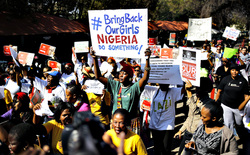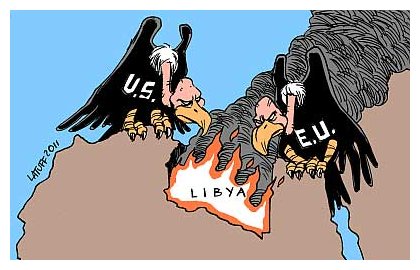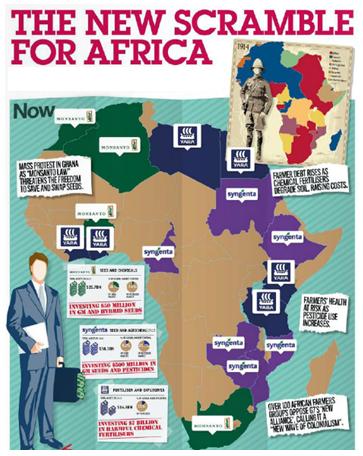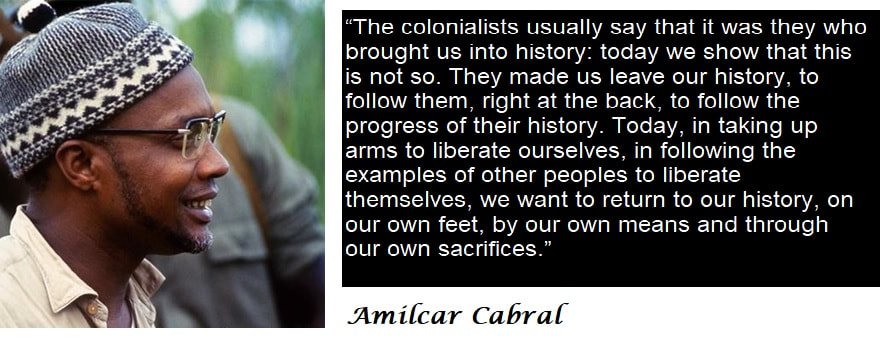Who we are
We are our own liberators......
One of the most destructive and longstanding forms of foreign intervention in Africa has been ideological and political intervention. The colonialists, basing themselves on their racist doctrines that Africans are incapable of developing ideology and political systems to serve their needs, and having violently implanted their own poltical systems and ideologies on the continent, demand that these are the only valid ones and they must be followed by all countries on the continent. In combating this aspect of foreign intervention, STOPFIIA will be sharing current research into Africa's own ideological and political traditions, which as Cabral points out, need to form the basis of African liberation from foreign domination and intervention.
Please email any information or articles that can add to this body of knowledge to: [email protected]
Please email any information or articles that can add to this body of knowledge to: [email protected]
Afrcian thought on the relationship between the individual, society and nature
The concept of Iwa in the traditional philosophy of the Yoruba people of Nigeria
"The philosophical tradition of the Yoruba had been so anchored on and entrenched in the concept of character development. The concept of character referred to by Yoruba as “IWA” is a set of qualities that make somebody distinctively interesting or attractive, especially somebody’s qualities of mind and feelings, somebody’s reputation. IWA (Character) is one of or perhaps the most important human endeavour taught within traditional Yoruba poetry. It is central to every human being, and imparts communal, social & civic responsibility. Central to this is the theme of righteousness and practicing good moral behaviour, not seeking for it in the community but becoming the Ambassador of IWA (Character)."
You can read more here: http://psychdiscourse.com/index.php/2013-08-20-02-30-17/version-48-2014/winter-2014-v48-3/237-winter-2014-v48-3/issue-articles/566-issue-article-3?page=2&module_id=407
The concept of Safuu in the traditional philosophy of the Oromo people of Ethiopia
Safuu is one of the key founding concepts in Oromo culture. Young Oromo children were often taught about the fundamental principle that telling the truth, respecting nature, being trustworthy, and standing for the right thing is natural to human beings.
You can read more here: http://etd.aau.edu.et/bitstream/123456789/8028/1/6.Dasta%20Alemayo%20Kenea.pdf
The concept of Hunhu in the traditional philosophy of the Shona people of Zimbabwe
The philosophy of Hunhu is central to Shona identity and is best captured in the saying, “a person is a person through other people”. It argues that to be human is to affirm one’s humanity by recognising the humanity of others in its infinite variety and that we cannot deny the humanity of others without denying our own humanity.
You can read more here: http://www.iep.utm.edu/hunhu/#H3
Articles for download
Democracy and Consensus in African Traditional Politics
A Plea for a Non-party Polity
Kwasi Wiredu
A Plea for a Non-party Polity
Kwasi Wiredu
| democracy_and_consensus_in_trad_african_politics_kwasi_wiredu.pdf | |
| File Size: | 455 kb |
| File Type: | |
Ways of Life 3: Indigenous Anarchism
By DJ Zhao
African forms of democracy and egalitarianism exist independent of, and predate, modern Western progressive social movements. It is time we revived their histories from systematic erasure, because they may hold the key to our collective future.
By DJ Zhao
African forms of democracy and egalitarianism exist independent of, and predate, modern Western progressive social movements. It is time we revived their histories from systematic erasure, because they may hold the key to our collective future.
| ways_of_life_-_indigenous_anarchism.pdf | |
| File Size: | 756 kb |
| File Type: | |
African Democratic Heritage: A Historical Case Study of the Igbo of Nigeria
D. I. Ajaegbo, Ph.D
In traditional Igbo society, a number of democratic institutions, values and norms existed through which the people governed themselves. Traditional authorities were not absolute leaders but governed in consultation with the people. The values of consultation, negotiation, cooperation, compromise and consensus were recognised and applied in the decision making process.
D. I. Ajaegbo, Ph.D
In traditional Igbo society, a number of democratic institutions, values and norms existed through which the people governed themselves. Traditional authorities were not absolute leaders but governed in consultation with the people. The values of consultation, negotiation, cooperation, compromise and consensus were recognised and applied in the decision making process.
| african_democratic_heritage.pdf | |
| File Size: | 137 kb |
| File Type: | |







